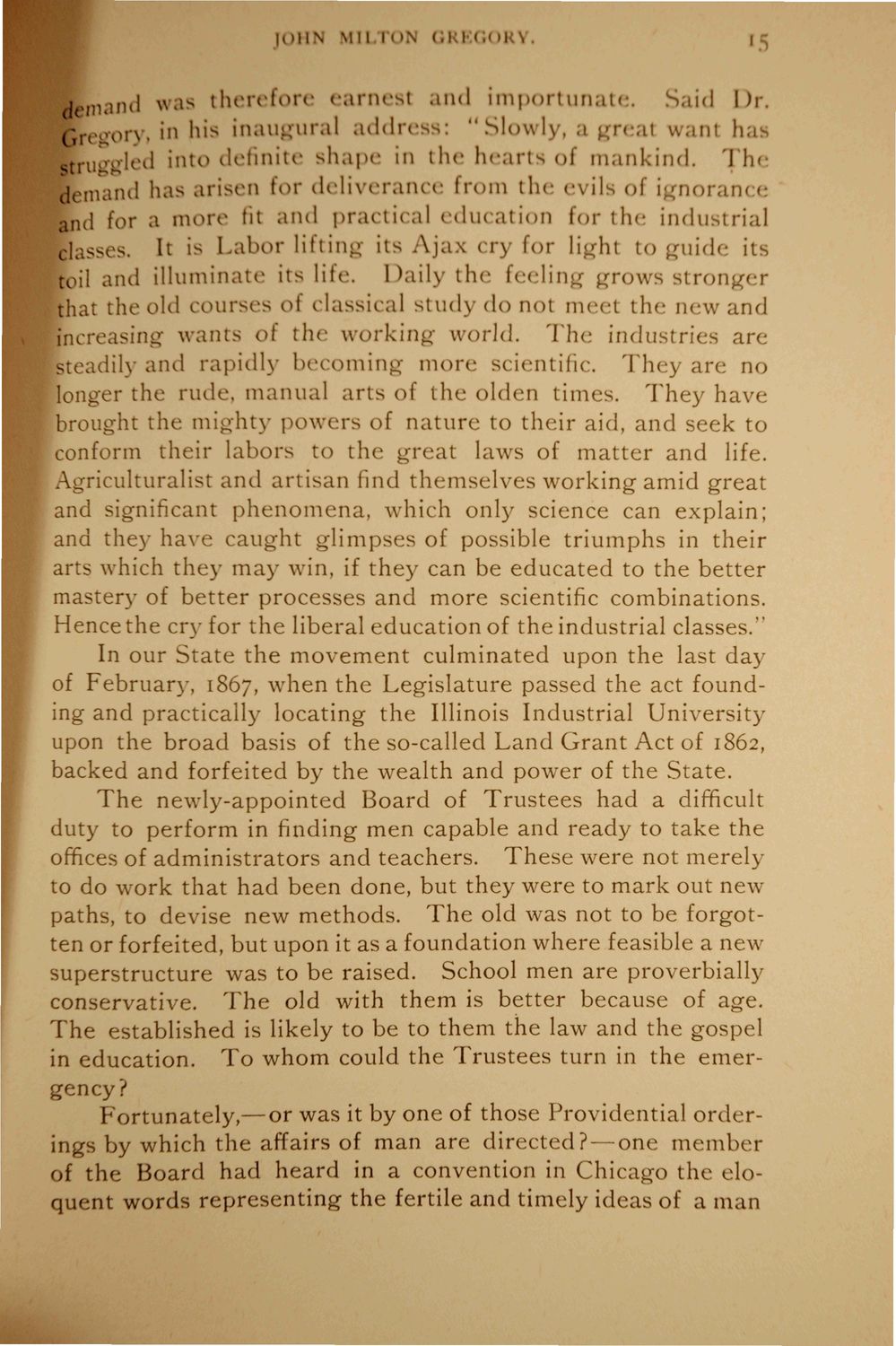| |
| |
Caption: Book - John Milton Gregory Memorial Convocation (1898)
This is a reduced-resolution page image for fast online browsing.

EXTRACTED TEXT FROM PAGE:
I N MILTON UKKCOKY, i i lemand was therefore earnest and importunate, Said Di\ Greiror) in his inaugural address: "Slowly, a gr it want ha niiTo-leil into definite sha| in the h irts of mankind. The demand has arisen ( r deliverance from the evils of i noran* e and for a more fit and practi< il education for the industrial classes. It is Labor lifting its Ajax cry for light to guide its toil and illuminate its life. Daily the feeling grows stronger that the old < ourses of classical study do not meet the new and increasing wants of the working world. T h e industries are steadily and rapidly becoming more scientific. T h e y are no longer the rude, manual arts of the olden times. T h e y have brought the mi any powers of nature to their aid, and seek to conform their labors to the great laws of matter and life. Agriculturalist and artisan find themselves working amid great and significant phenomena, which only science can explain; and the)' have caught glimpses of possible triumphs in their arts which they may win, if they can be educated to the better mastery of better processes and more scientific combinations. Hence the cry for the liberal education of the industrial classes." In our State the movement culminated upon the last day of February, 1867, when the Legislature passed the act founding and practically locating the Illinois Industrial University upon the broad basis of the so-called Land Grant Act of 1862, backed and forfeited by the wealth and power of the State. T h e newly-appointed Board of Trustees had a difficult duty to perform in finding men capable and ready to take the offices of administrators and teachers. T h e s e were not merely to do work that had been done, but they were to mark out new paths, to devise new methods. T h e old was not to be forgotten or forfeited, but upon it as a foundation where feasible a new uperstructure was to be raised. School men are proverbially conservative. T h e old with them is better because of age. T h e established is likely to be to them the law and the gospel in education. T o whom could the Trustees turn in the emergency/? Fortunately,— or was it by one of those Providential orderings by which the affairs of man are directed? — one member of the Board had heard in a convention in Chicago the eloquent words representing the fertile and timely ideas of a man *
| |